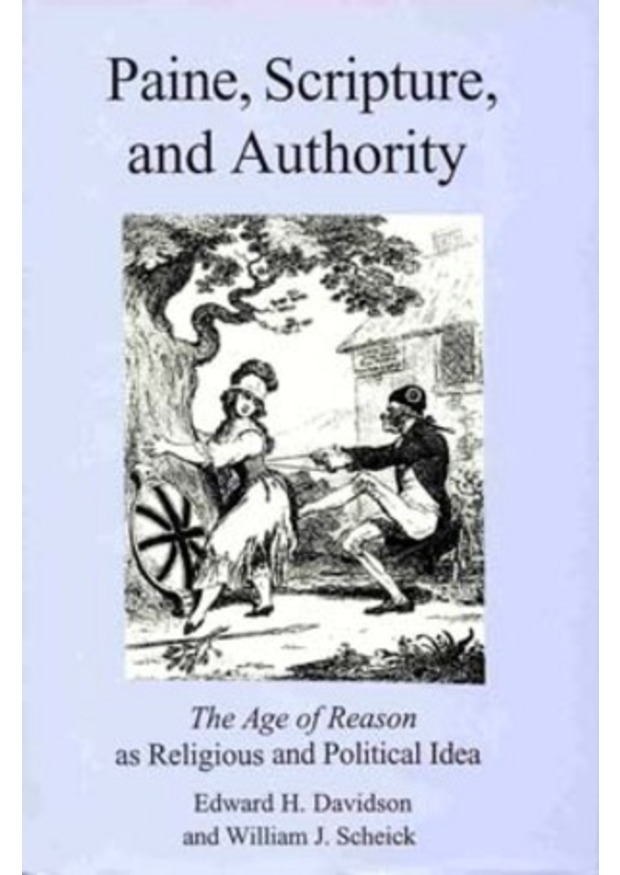The Age of Reason as Religious and Political Idea
This study discloses the intellectual context and the personal pretext of Thomas Paine's assault on religion in The Age of Reason. It uncovers adumbrations of Paine's correlation of religion and politics in his earliest work, the ways in which his controversy with Edmund Burke served as a transitional stage to his writings on Scripture, and the biblical criticism available to him as the main features of the contextual background of his struggle to assert authority. Although the "spectacle" of Paine's literary performance derives from intellectual conviction, it also arises from personal conflict―particularly as expressed in his lifelong opposition to various established patriarchal figures. Paine's achievement of authoritative voice, however, remains precarious and paradoxical in nature. His authority is always grounded in the very authority he deposes, with the result that his voice is little more than a theatrical performance that unwittingly re-enacts the rhetorical maneuvers of deposed father figures.
Paine never quite creates himself in any definitive sense. His identity, ever negotiating its authority through a linguistic performance of opposition, is necessarily left as incomplete as is the argument and text of the paratactic Age of Reason. In this pattern, Paine's work resembles a number of early American conversion narratives, which reveal a similar lack of completion in structure and resolution. In effect, The Age of Reason is a spiritual relation with a counter-religious design. It conveys Paine's desire to convert an audience of popular readers—even more than an audience of educated readers―to his "inspired" political insight: the need to depose all religious and political patriarchal forces to prevent the continuation of generational filicide and to regain paradise on earth.
Paine's spiritual relation instructs his readers to engage in an ongoing revisionism within themselves and in their world. His confession exhorts his readers to "write a better book" through their personal realization of heretofore repressed human potentialities. His work implicitly exhorts his readers to give—in their thoughts and in their reactions―a scriptural testimony of the latent capacities of the human mind and society, capacities far beyond anything suggested in the Bible as it is used by the church and state in the subjugation of humanity. For Paine, a "spiritual" descent, such as his in The Age of Reason, into the interior of the mind reveals that a discredited external authority can be inverted and that a credited internal autonomy can be asserted in its stead. Such descent/dissent creates the possibility for conversion, for the transformation of outmoded religious beliefs into a political paradise regained.













